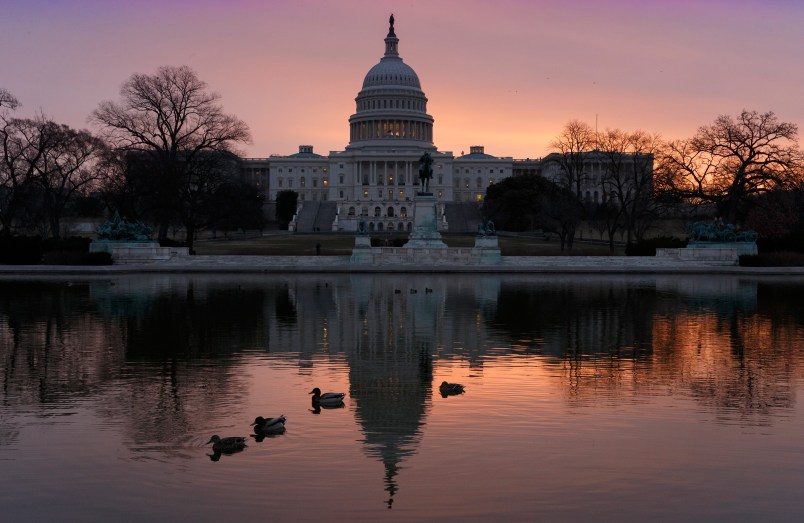An appeals court has rejected a long-shot lawsuit seeking to invalidate the Senate’s filibuster rule as a violation of the Constitution’s implicit principle of governance by the majority.
A three-judge panel of Republican appointees ruled unanimously Tuesday that the challengers — led by the transparency group Common Cause — lacked standing to sue, but didn’t weigh in on the merits. They said the listed defendant, Vice President Joe Biden (in his capacity as president of the Senate), could not be held liable for any injuries suffered by the plaintiffs.
“In short, Common Cause’s alleged injury was caused not by any of the defendants, but by an ‘absent third party’—the Senate itself. We therefore lack jurisdiction to decide the case,” Judge A. Raymond Randolph wrote in his 9-page ruling, upholding a lower court decision that also dismissed the case on standing.
The lawsuit was co-signed by four Democratic congressmen — Reps. John Lewis (GA), Keith Ellison (MN), Michael Michaud (ME) and Hank Johnson (GA) — who voted for the DREAM Act and DISCLOSE Act in 2010, which were scuttled by the 60-vote threshold in the Senate. It was also co-signed by individuals who would have benefited from the DREAM Act.
The filibuster, under Senate Rule XXII, lets a single senator force a 60-vote threshold for cutting off debate (or invoking “cloture”) on legislation and proceeding to a final vote. The cloture rule was created in 1917 and has since evolved. The Constitution says nothing about the issue, declaring that “[e]ach House may determine the Rules of its Proceedings.”
In his ruling, Randolph identified a major problem with regard to standing: the onus for the cloture rule is on the Senate, and senators cannot be held liable for filibustering, due to the Constitution’s Speech and Debate Clause.
“If ‘we assume for purposes of standing that [Common Cause] will ultimately receive the relief sought’ … it will be the Senate that has to conduct its legislative business according to a court-ordered change in its rule. Yet the complaint named neither the Senate nor a Senator. It is apparent why,” the judge wrote. “The Constitution’s Speech or Debate Clause provides that ‘for any Speech or Debate in either House,’ Senators and Representatives ‘shall not be questioned in any other Place.’ The Clause confers immunity for any act that falls ‘within the sphere of legitimate legislative activity.'”
Stephen Spaulding, policy counsel for Common Cause, took issue with the ruling.
“Obviously, we’re disappointed by today’s DC Circuit decision. Our attorneys are reviewing the court’s opinion before deciding on a future course of action,” he said in a statement Tuesday. “It’s important to note that the court’s decision was strictly procedural; the judges did not rule on the merits of our claim that the filibuster rule and its 60 vote requirement for Senate action is unconstitutional.”







Although the decision may be right on the outcome, the method of reaching it is kinda sleazy to my way of thinking, because it’s pretty obvious that there’s no named defendant the court would find suitable. (If you can’t sue the senate as an entity, and you can’t sue it in the person of its officers, you’re pretty much done. It’s as if Supreme Court had accepted the state-government claim in Roe v. Wade that the case was moot because any possible plaintiff would already have given birth by the time the case was decided.)